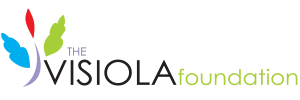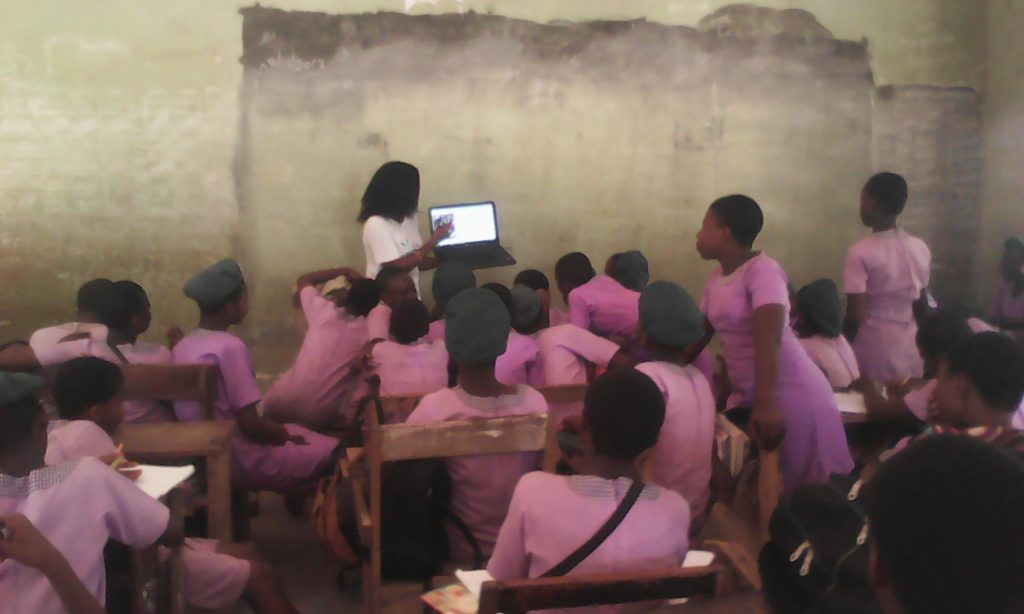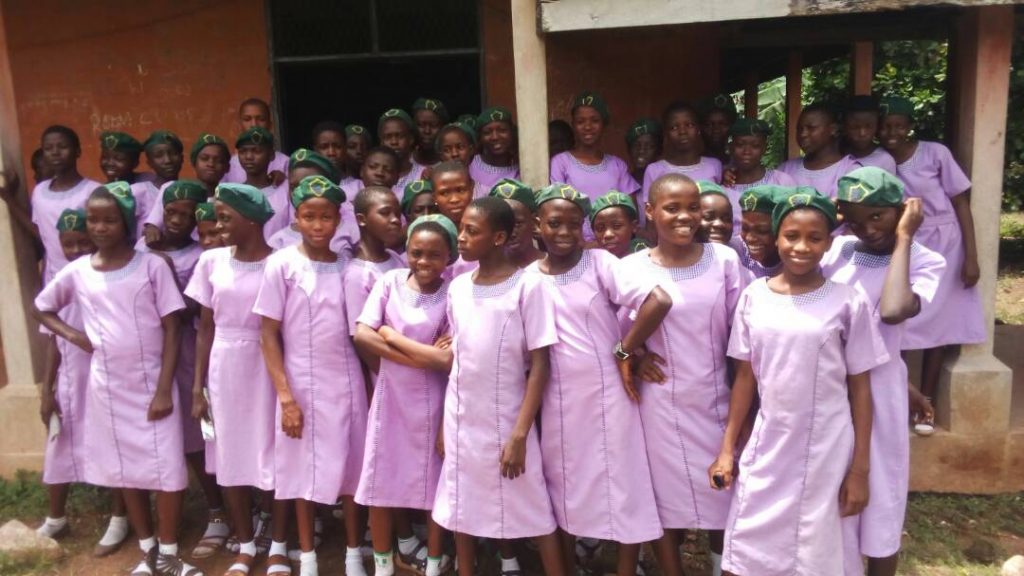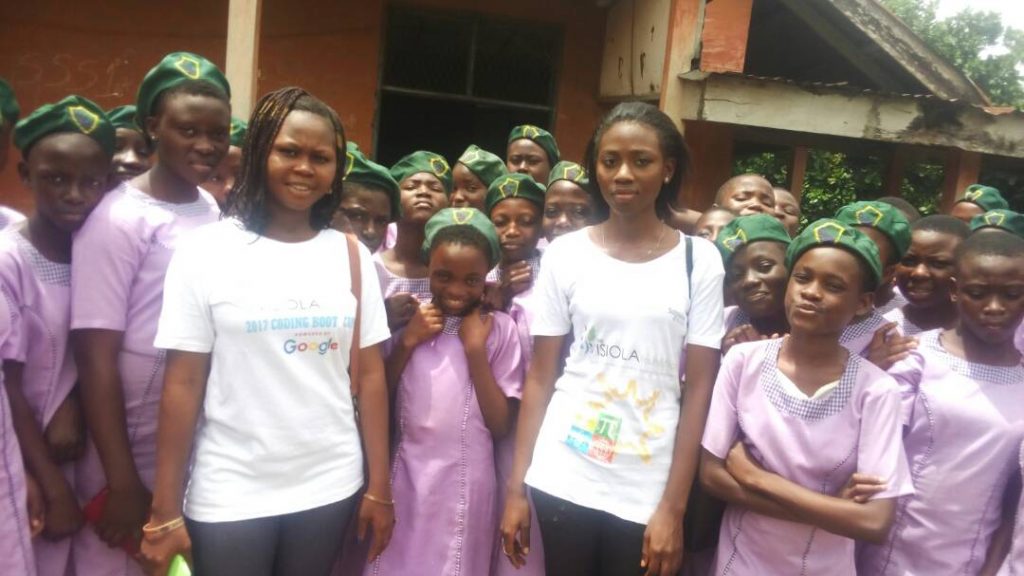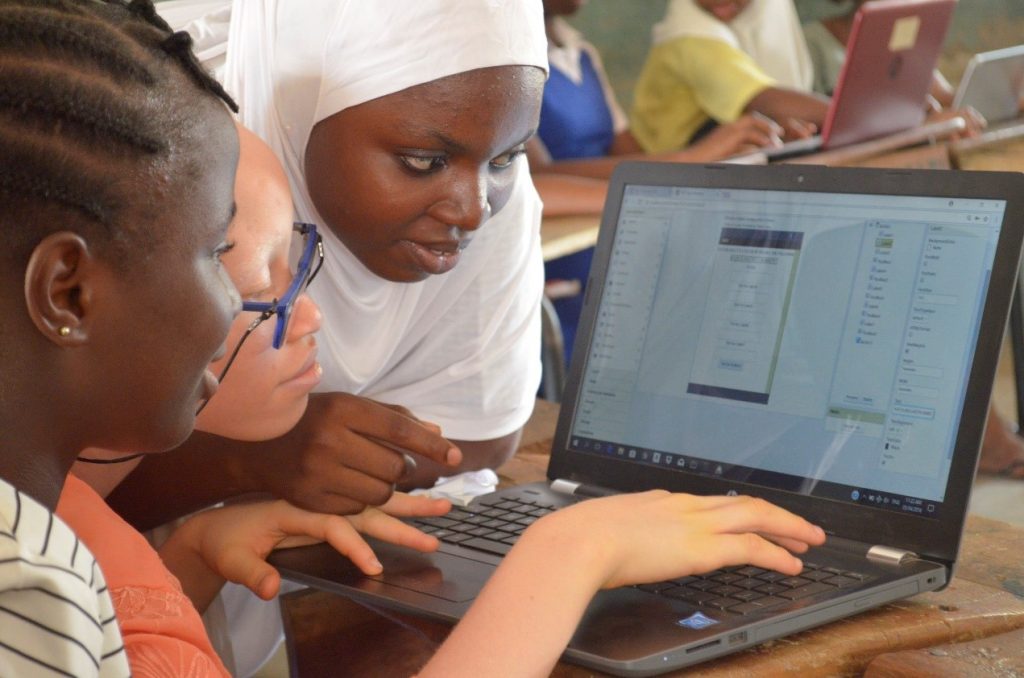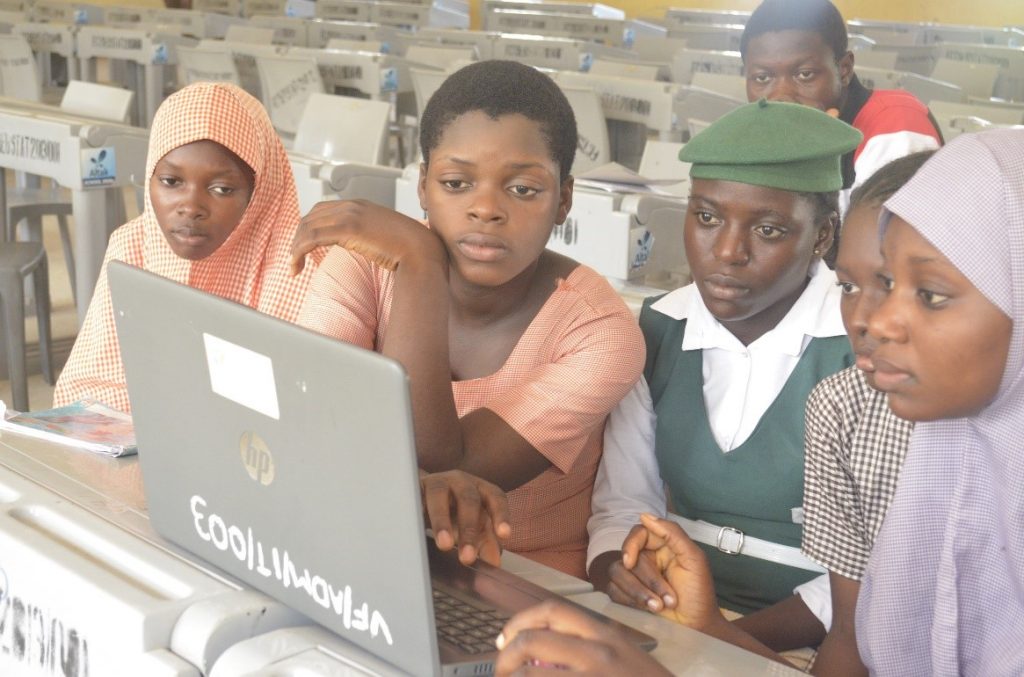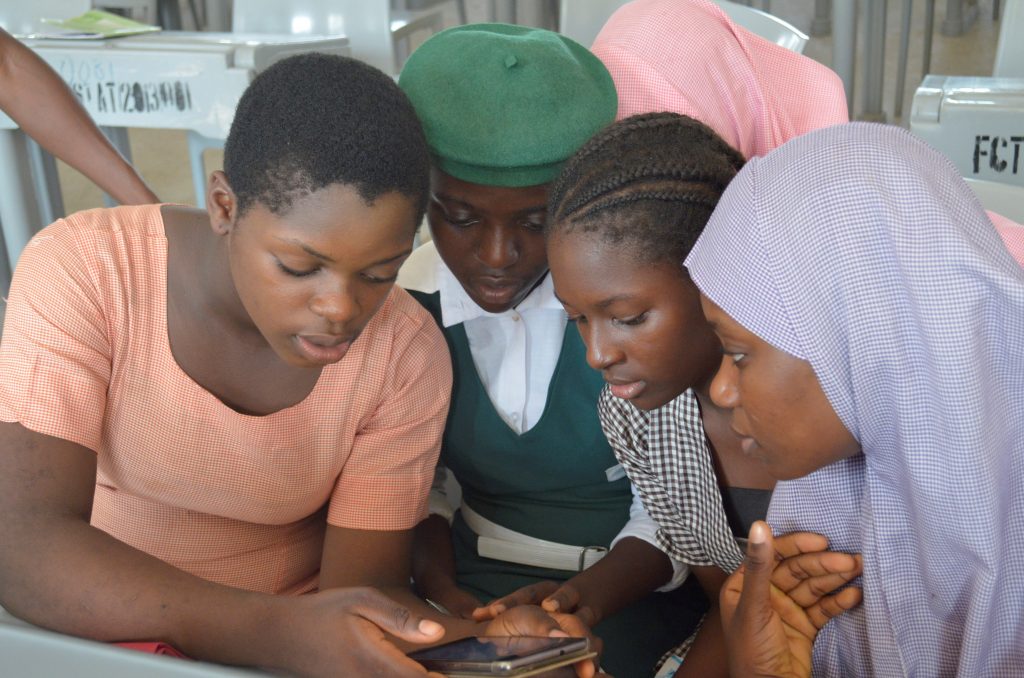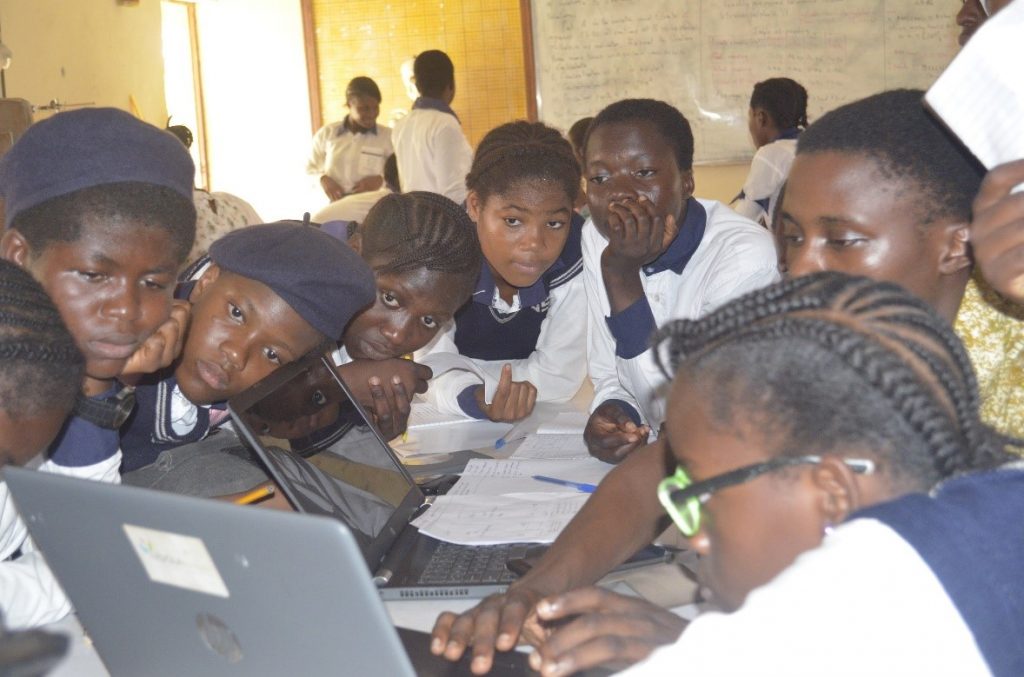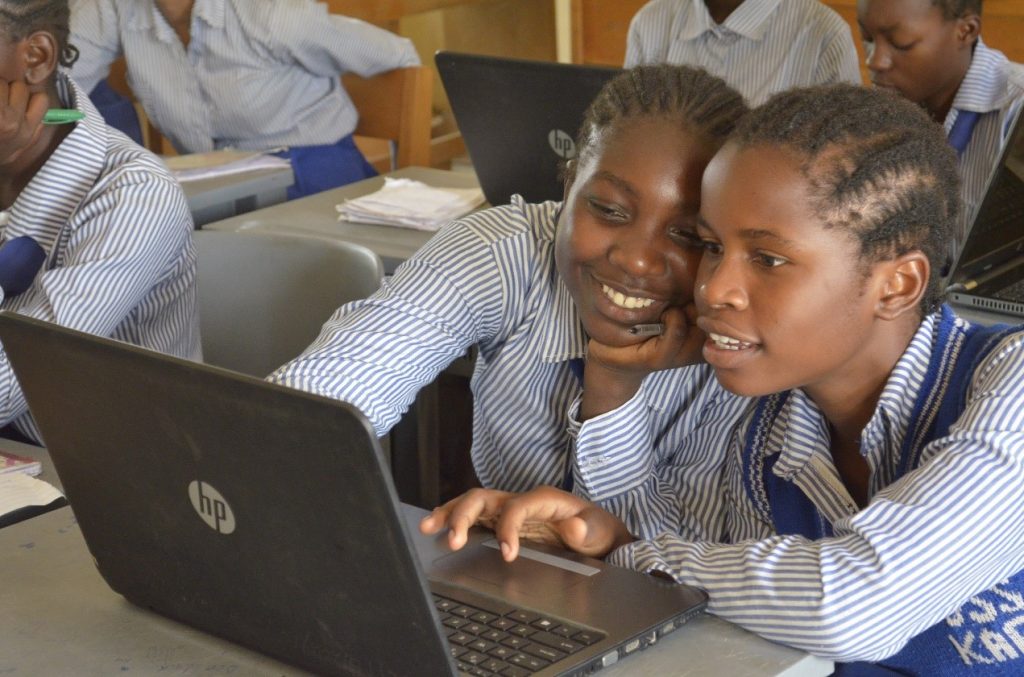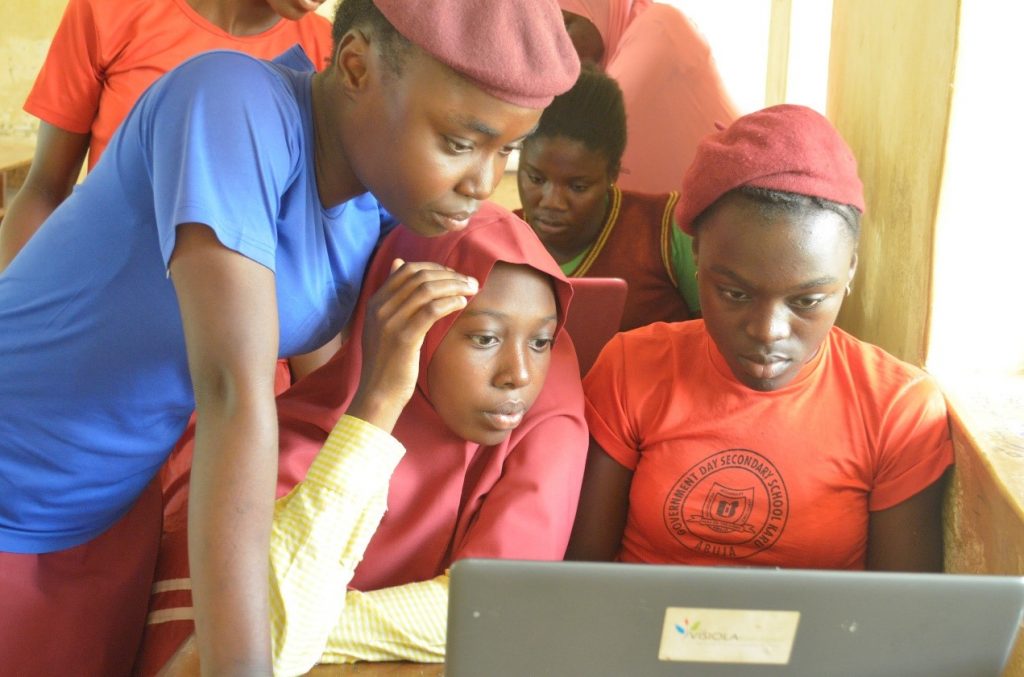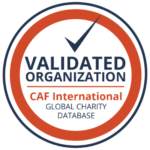the visiola foundation e-newsletter
Issue Q1, 2018
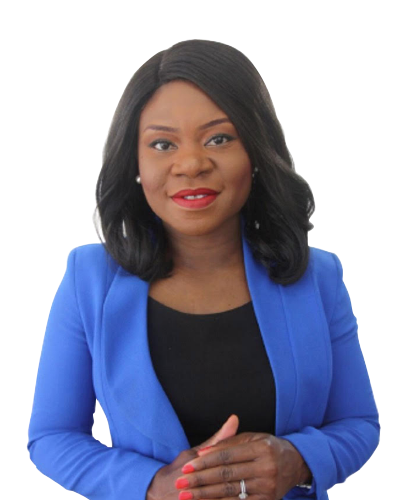
Ladé Araba
Founder and President of the Visiola Foundation
Founders' Corner
I cannot begin to describe our excitement at the progress being made by participants in our various programs. What we do is challenging, particularly when you consider that our students lack personal computers, and also don’t have access to them in school. This unfortunately creates additional hurdles as many of them rely on the Visiola Foundation’s laptops to learn and practice. Many of the schools are poorly resourced and even when computers are available, the number of those that actually work is small, and more often than not, there is no electricity. Despite these setbacks, our students make do and try to absorb as much as they can. The Foundation is exploring options with some of its partners to gather used laptops to enable the students to practice what they learn during their spare time.
The Foundation is further boosting its efforts to build the capacity of the teachers who support students in our programs. By equipping them with the knowledge and skills to teach effectively, we expect to achieve greater impact in the long-term. We have a number of activities planned for the remainder of the year and look forward to sharing updates in subsequent quarters.
I would like to conclude by specially recognizing our dedicated staff who work tirelessly to train all the students who participate in our programs. In addition, what we do would not be possible without the commitment of our team of volunteers who make themselves available at short notice to teach and provide logistical support where
necessary. Finally, we owe a debt of gratitude to our mentors, partners, sponsors, Board of Trustees, and Global Advisory Council whose personal time and financial support are invaluable.
We hope you enjoy reading about our students’ activities during Q1.
Warm Regards,
Ladé
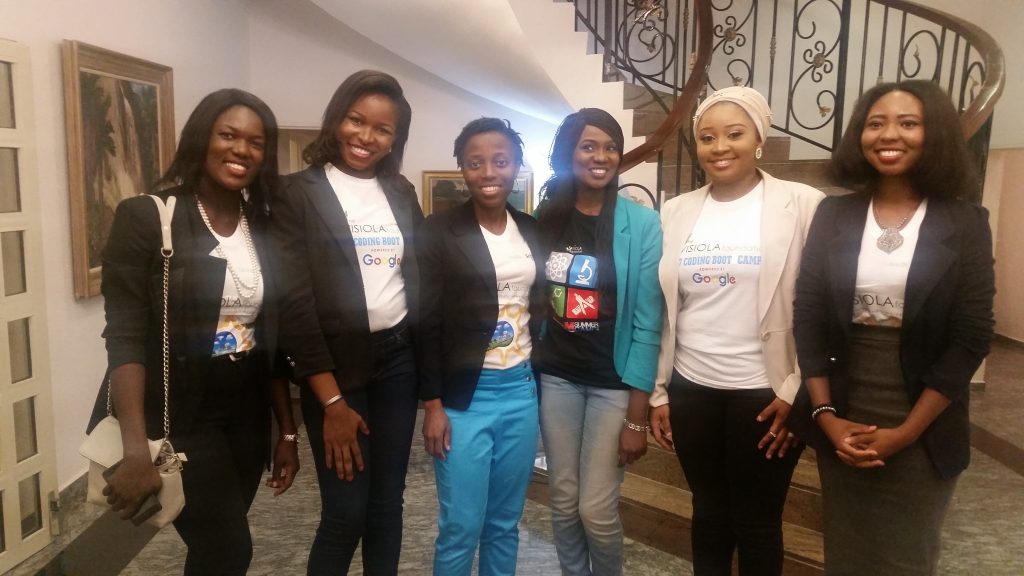
2017 Camp Graduates and Instructors at the US Ambassador’s Reception
2017 CODING BOOT CAMP GRADS MEET AMERICAN STEM PROFESSIONALS AT US AMBASSADOR’S RESIDENCE
Four graduates of the Visiola Foundation’s 2017 Coding Boot Camp for Girls were accompanied by two of our instructors to a reception on March 22nd hosted by the US Ambassador to Nigeria at his residence in Abuja. Chinwe, Elizabeth, Ebi, Farida, Rejoice, and Uzoamaka had the pleasure of networking with accomplished female STEM professionals from America and Nigeria.
“It was a really interesting experience for me. Ambassador Stuart Symington welcomed us and encouraged us to learn to be actors and take advantage of the opportunities that come our way. He urged us to network and ensure we met as many of the women in attendance as possible” stated Rejoice (Front-End Developer, Blackbit Limited). “I enjoyed speaking with the owner of an IT company in Lagos that teaches STEM to primary school children. I also met two American women who facilitate separate student exchanges globally. Finally, an Abuja private school teacher asked us to expand the Foundation’s After-School Clubs to students at her school.”
Rejoice summarized the rest of the evening as “I spent the rest of the evening asking about the stories of some of the women in STEM. It was indeed a wonderful experience.”
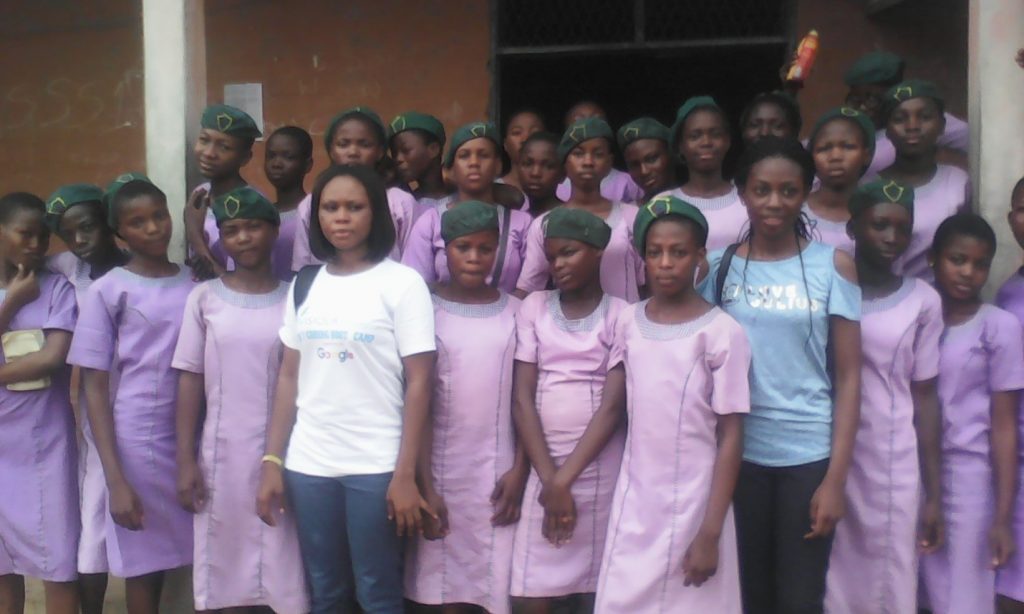
Divine and Mary train students in ICT and computer programming
SCHOLARS AT LEAD CITY TEACH COMPUTER CLASSES TO SECONDARY SCHOOL STUDENTS
Divine and Mary, 2016 Visiola Foundation Scholars at Lead City University shared updates about their community project in Ibadan. They are pursuing degrees in Computer Science and are passionate about exposing undeserved students to computers.
“A large number of students in our community cannot operate computers. This is quite alarming because we live in a technological age where computer is critical for long-term success. Moreover, these students will be required to sit for the JAMB examination (a computer based test) before gaining admission into higher institutions in Nigeria. Yet, the majority of students in the public educational system in the country lack computer training.
We have also observed that gendered educational disparity begins at the primary level and continues through secondary school. In an effort to transform the lives of youth in our community, we contribute to building the capacity of girls by teaching students in select secondary schools in Ibadan skills in ICT and computer programming. These girls with no previous knowledge in computers are now prepared to take computer based tests which is a requirement for admission to universities in Nigeria and have been empowered technologically through focused training that will enable them leverage technology to solve problems and make life easier in their own communities.”
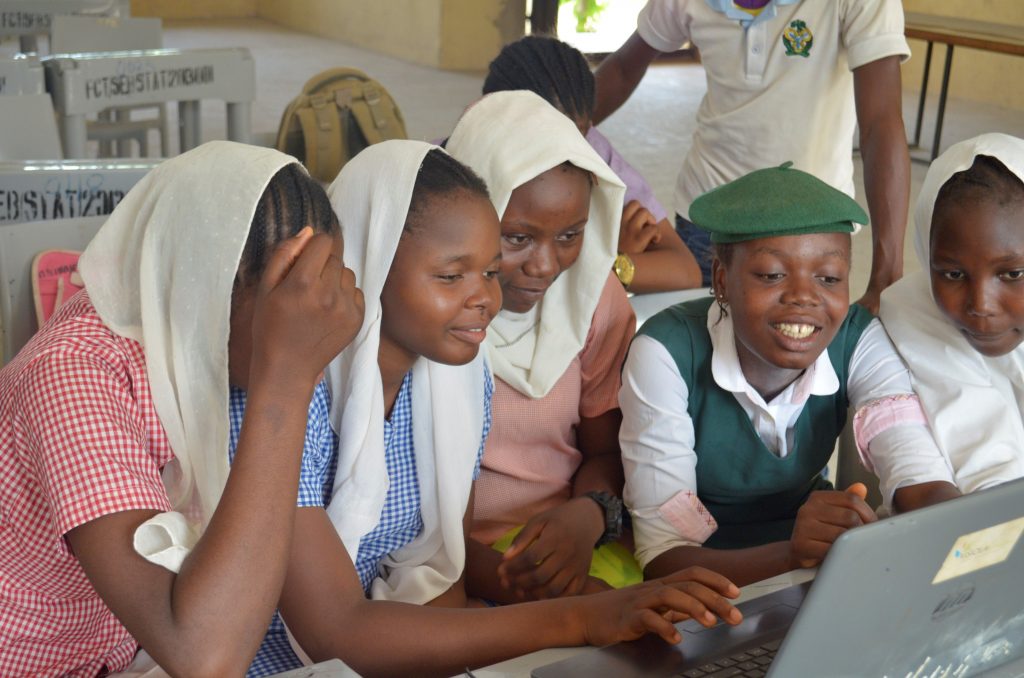
STUDENTS DEVELOP MOBILE APPLICATIONS IN THE AFTER-SCHOOL STEM CLUBS FOR GIRLS (ASCG)
The Visiola Foundation’s After School STEM Club for Girls (ASCG) focuses on enabling girls to transition from consumers of technology to creators.
During the first term, girls were exposed to programming and mobile app development. They learnt how to build basic mobile apps and were tasked to develop mobile technology solutions to problems they identified in their communities.
The students developed solutions ranging from tech-based healthcare delivery, agriculture, improved sanitation and better educational outcomes. Although they lack personal computers and mobile phones, they worked hard and were very eager to learn. They have also strengthened their interpersonal skills, can work better in teams, and are learning to speak confidently before audiences.
“There is truth in the saying you can do whatever you set your mind to. Learning to code has been amazing and I feel cool that I can build mobile applications to solve problems.” – Grace (14)
“It is amazing. I learnt how to write a business plan for my business idea. This experience has definitely improved my writing skills.” – Chidera (16)
did you know
Only three countries – Libya, Mauritius and Tunisia, have at least one doctor per 1,000 people.
Sub-Saharan Africa has the second smallest public health expenditure of all regions, far bellow the worlds average.
In 2017, the African average for youth unemployment (13.6%) is more than twice that of adults.
More than 60% of primary school students dropped out in Madagaskar, Mozambique and Rwanda in 2012.
The share of STEM research in Sub-Saharan Africa has declined by 0.2% every year since 2002.
The fewer Human Resources in Primary School, the higher the Primary School drop out rate.
Literacy among 15-24 years-old Sub-Saharan women increased by more that 10% between 2000 and 2016.
An estimated 17 million teachers are needed to achieve the goal of universal primary and secondary education by 2030.
If all students in low-income countries gained basic reading skills, 171 million people could be lifted out of poverty.
Source: UNESCO (2016); UNICEF (2016); Irahim Forum Report (2018)
